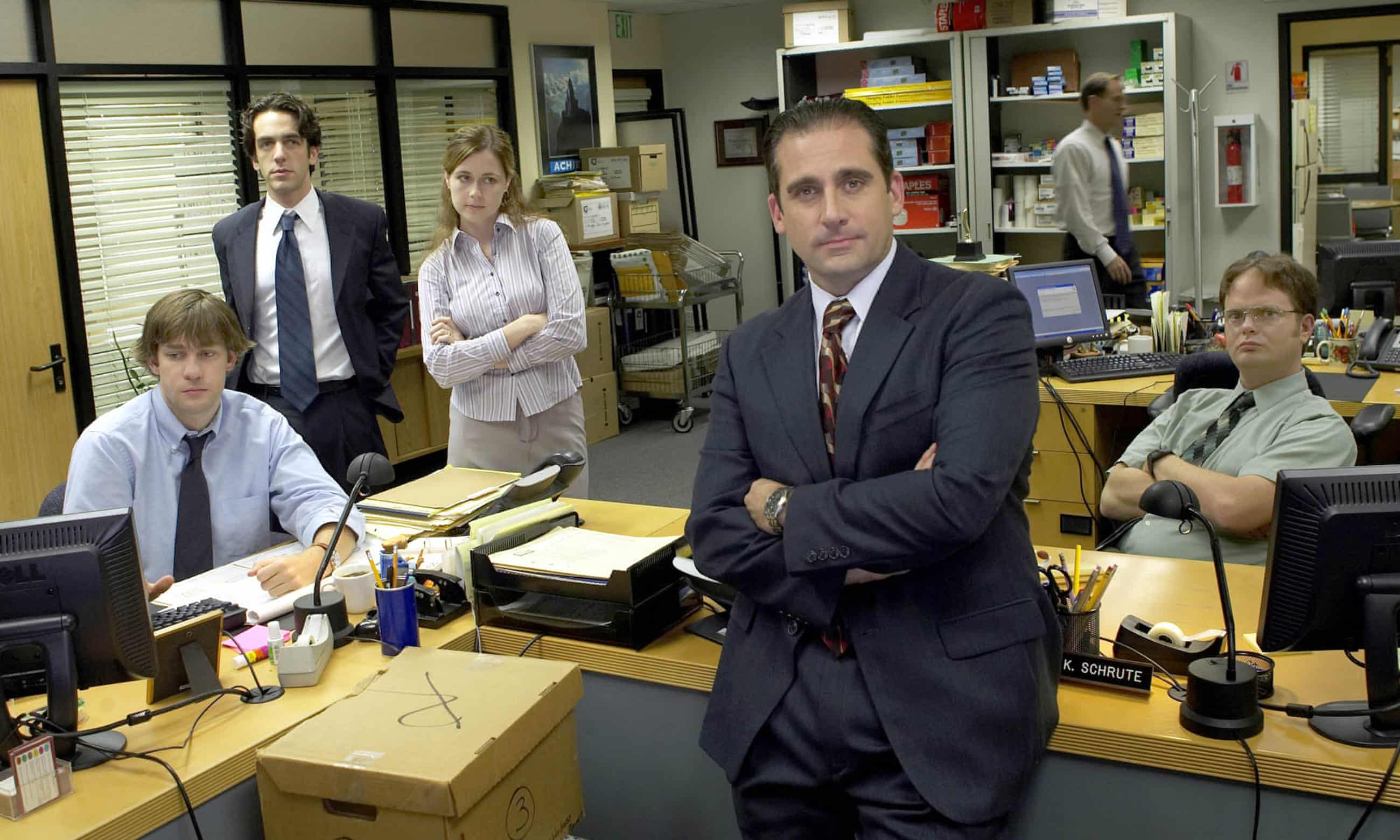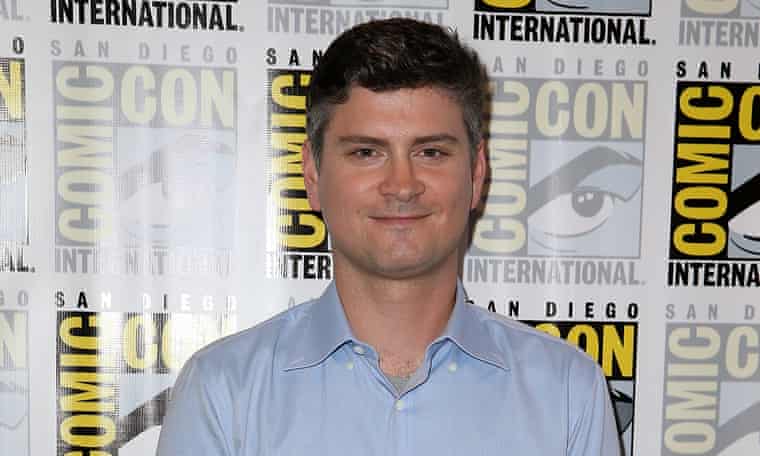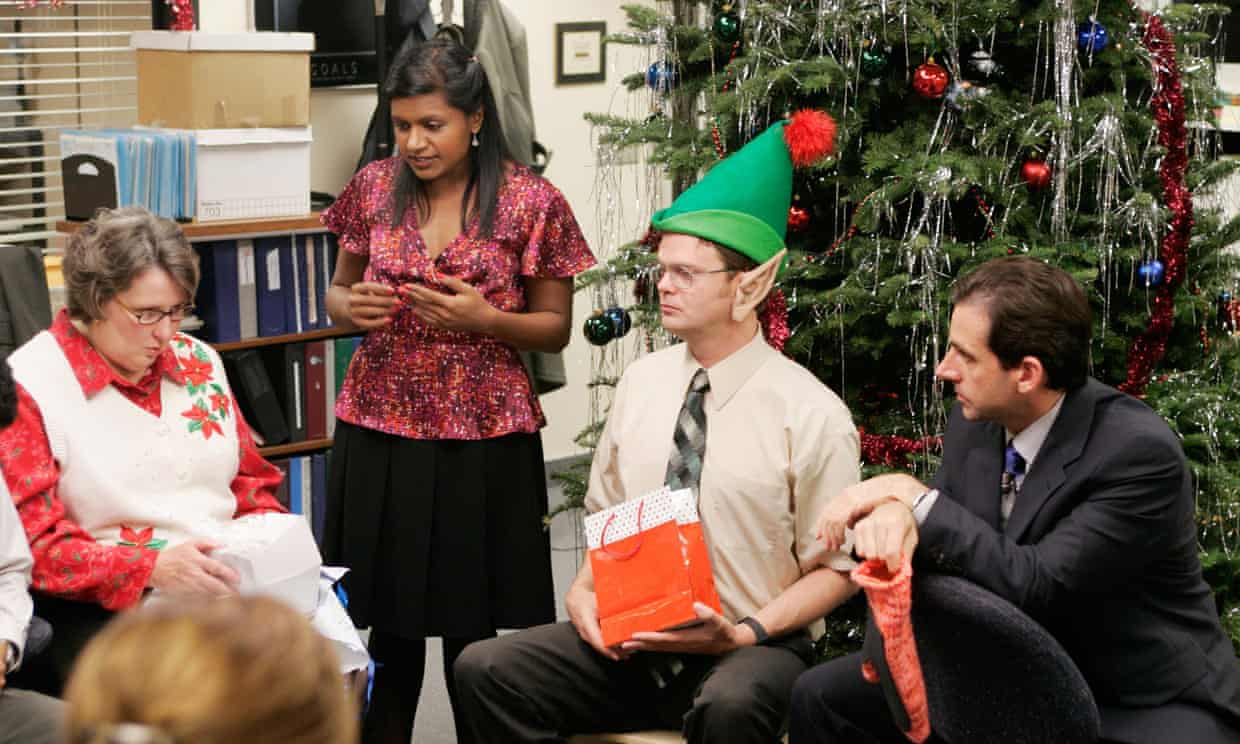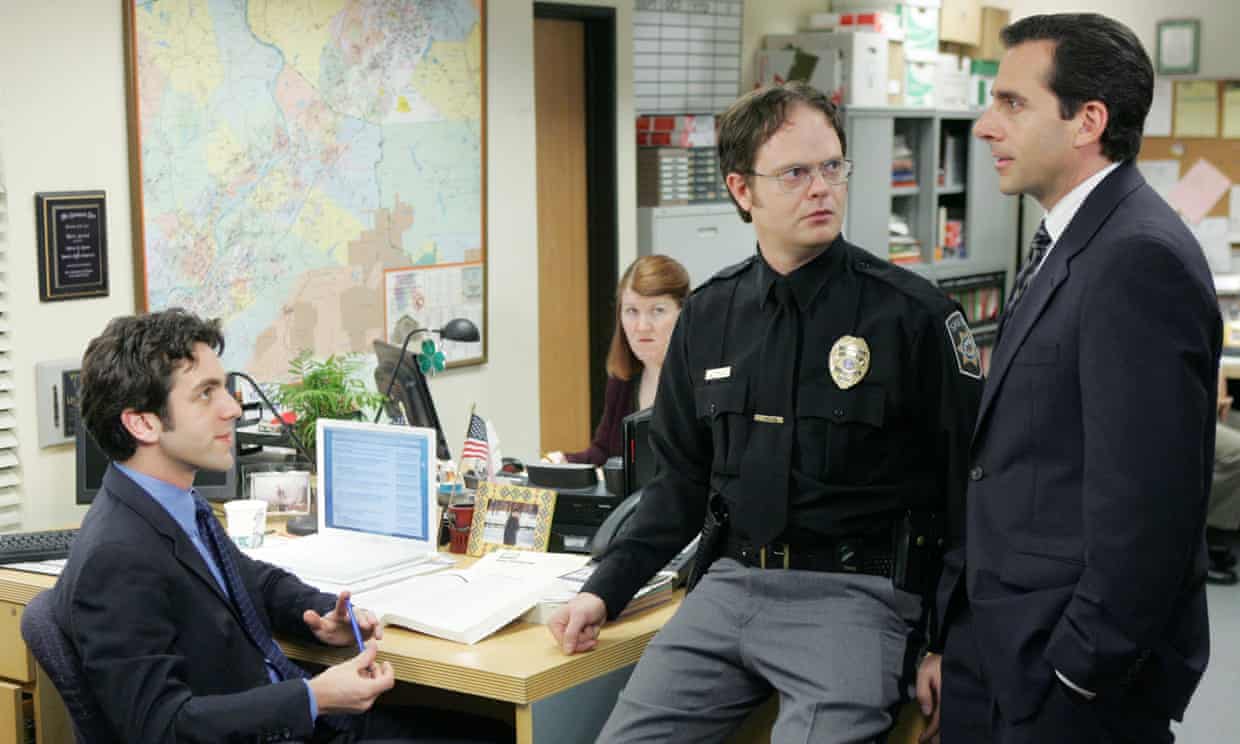
Television
'Everyone considered it a bad idea': How The Office went from Slough to Scranton
As the latest collaboration between Greg Daniels and Steve Carell, Space Force, comes to Netflix, the stars of The US Office look back at the making of a modern classic
by Simon BlandGreg Daniels (showrunner): The UK version hadn’t finished airing and I’d never heard of it. My agent sent me a VHS tape of season one. It had a somewhat boring title so I didn’t look at it. He told me he wanted to show it to someone else if I wasn’t interested, so I popped it in. I watched the entire first series that evening.
Michael Schur (writer/producer): I think Seth Meyers was the first person who brought it to me. He had a friend doing improv olympics in Amsterdam and had brought back a bunch of DVDs. We watched it like it was the Superbowl. I just couldn’t believe what I was looking at.
Daniels: I arranged to meet with Ricky [Gervais] and Stephen [Merchant] when they were in the US. We got along really well. They were big fans of The Simpsons, which I’d worked on. I made my pitch to adapt it in a way that was very similar to the values I had doing King of the Hill, which was very realistic. I was somewhat hampered by excessive respect for the original. The challenge of the pilot was “can I make something that looks and feels like the British show and has a great cast?” After the show got ordered, I had another five episodes. Then the challenge was “let’s do all original scripts and see if we can keep that feeling of the British show but do it from an American point of view”.

Schur: We added a more classic American sitcom formula and imposed a repeatable structure. The first six episodes were very true to the tone of the British show – every episode ends on a downbeat note and, that summer, we almost got cancelled. Then Steve Carell was in The 40-Year-Old Virgin, which was this unexpected hit. In our first meeting before season two, Greg said we need to take 20% of the Steve in The 40-Year-Old-Virgin and put it into Michael Scott [Carell’s character]. We thought he was crazy but it was the best decision anyone ever made. “That’s What She Said” was a joke dorky radio DJs made and thought they were funny. I believe it was BJ [Novak, writer/Ryan Howard] who said “Michael should definitely say ‘That’s what she said’, but earnestly, thinking it’s hilarious”. It was always funny.
Mindy Kaling (writer/Kelly Kapoor): I was 24. I hadn’t much heard of the British Office until I went in to audition. I think the two seasons and the specials are perfect, but I also just needed a gig. I remember what was so great about the show was that you could be funny and real without having to be gorgeous. What Greg said – and I’m sure Ricky and Stephen felt this way when they were doing the original – is what’s real is what’s beautiful, not what’s beautiful. I found that very empowering.
BJ Novak (writer/Ryan Howard): I was well aware that everyone considered it a bad idea. It was either too slow, quiet and offbeat to ever work on American television, or too smart, stupid and blasphemous for us to attempt – but I felt that at least we were aspiring to something great. We were imitating something we truly admired.
Kaling: He [Michael] wore his emotions a little bit more on his sleeve than David Brent. I used to look at episodes and be like, “does he cry every episode?” He was so emotional and not afraid of showing it. He thought of himself as Mel Gibson in Braveheart but he was such a sensitive and vulnerable character. I think that’s something that made Michael approachable and made you root for him. I felt uniquely qualified in the writing staff because I was the only woman and the only minority. I felt I had this trove of times I’d been offended in a workplace environment, but I think the thing The Office did really well was well-meaning people who are trying not to offend you as a minority woman, but do it anyway. I felt I could put that to use on the show.

Novak: Steve naturally brings so much truth and emotion to everything he plays that we could write the most extreme comedy scenarios for him, such as stepping on a George Foreman grill and declaring himself disabled or falling in love with a chair model from a catalogue and asking the office to help him find her. In anyone else’s hands that might sink the character, but Steve had a three dimensionality that let him dig himself out of any situation.
Daniels: There was a small part within [the episode] Diversity Day where Michael had been making horribly offensive jokes and Toby (Paul Leiberstein) made one tiny, innocent joke and Michael turned on him very self-righteously. It escalated from there. Steve would lean into that dynamic whenever he had a chance to improv.
Novak: The only thing we never wanted to reveal was why Michael hated Toby, because we thought it’d take the fun out of it.
Schur: It wasn’t hard to keep things grounded because we had rules. Every episode is one day – and we almost always stuck to that – and it was a documentary. Greg hired documentary camera operators and the rule was: if this isn’t a realistic shot that these people could’ve got, then we can’t do it. At the time, the show 24 was getting big. I tried to sell Greg on an episode that’d happen in real time. My pitch was Kevin would get a chicken pot pie and it’d say on the instructions “microwave for 21 minutes and 30 seconds”. The episode would begin with him putting it into the microwave, setting it for 20:30 and hitting start. The story would play out over 21 minutes in real time and at the end of every act, he’d go back into the kitchen and we’d slowly push in on the microwave clock counting down.
Daniels: There were times where [the writers] would become enamoured with a joke and I’d have to put my foot down. For instance, they really wanted Michael to kill Meredith with his car. That was an early pitch, where he runs her over in the parking lot and then comes back, gets a tyre iron and finishes the job. I was like “You can’t do that, that’s crazy!”
Mindy: Getting to know the other performers between takes and taking that knowledge back to the writers room was so useful. That was especially true with people like Ed Helms [who played Andy Bernard]. He’d be in his trailer playing the banjo and you’d go “Oh my God, Andy has to play the banjo!” That’s such a specific choice.
Novak: [Writing for the ensemble cast] was an absolute joy because they were so clearly drawn in the hands of these actors. We knew them so well that any idea in your writer-brain would naturally have a home in someone. Whether it’s a snarkily correct point that Oscar could make, something beyond human comprehension that Creed could say, something overly literal for Dwight or a voice or reason for Jim or Pam – there was always someone who could embody any idea.

Schur: It was pretty clear early that this show was striking a chord with people but I don’t think any of us really understood the impact until the new version of television emerged which is everybody watching everything on Netflix, Hulu, Amazon and whatever. I played Mos, Dwight’s weird ghoulish farming cousin and I’ve been recognised more in the last three years for playing Mos than I ever did when I was actually playing Mos. It’s very strange.
Novak: It showed that a very subtle and realistic sense of humour could be popular and once people realised that, it opened up a path for a lot of shows to work in that style. When it aired in the US it was very against the grain – not only was there no studio audience, there wasn’t even any music.
Kaling: It’s such an amazing feeling to have been a part of it. Greg let us have such free rein. I wrote this episode called Diwali and I remember thinking “I’m so lucky that Greg is open to me doing this episode” I don’t know many people at that time that would’ve let an entire episode be about a Hindu holiday.
Daniels: It was really lightning in a bottle to get that cast together and the writers, as well. It was a very talented crew that made it and loved it and put in the extra effort.
The US Office is available on Amazon in the UK